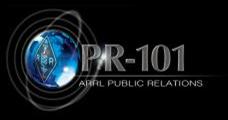|
You are on Page 5 of Section 10 |
|
● Introduction & Index
● What is PR
● Job Expectations
● Types of Media
● Building Relationships
● Media, Hams & FCC Rules
● The Basic News Release
● Interviews and Live
● Making your own show
● Easy P.R.
● Public Service Events
● Piggy-back to Events
● Pictures NOW!
● P.R. Research Aids
● Making Friends
● ARES® PIO
● Final Exam Information
|

|
Now that you know how to design a PR campaign for events, what other “Easy P.R.” might be available in a proactive situation? There are many. Here are some examples.
PROCLAMATION
These are documents issued at all levels of government, including state, county and city or town. June is often “proclamation season” for amateur radio because Field Day becomes the catalyst for an “Amateur Radio Appreciation Week”. Getting a proclamation issued is easy. Go to your PR calendar you’ve designed, and pick out an amateur radio event that you think will have high visibility in the community and will likely be covered by media news (Field Day is a natural for this). Then look at local government and see when the local legislative councils will be meeting one to two weeks in advance of the event. Call the Secretary or Clerk to the council (be it county, city or town) or go to the governmental entity’s website and search for “Obtaining a Proclamation”. Most cities will provide you a website template to complete. ARRL offers a sample proclamation available in the Public Relations packets sent out each year with field day information. You can also look for it most years at http://www.arrl.org/field-day
PROFILE OF LOCAL AMATEUR OPERATORS
People love reading biographies of people and what makes them special. Within each community there are many amateur radio operators about whom a story would be of interest to local media. Here are some angles which editors and producers might find fascinating:
- Oldest Ham in the community - Youngest Ham in the community - Oldest person to pass an amateur radio exam - Long running net control operator - Pioneering operator, especially women and minority operators - Operator who invents something and credits his Ham Radio background for helping him think of it - Organizer of local “DXpeditions” - Organizer of communications for local charity events - One or more operators who have become NIMS/ICS certified - Morse Code operators - Digital, SSTV or ATV operators - ARES® operators who are protecting local neighborhood - Operators who operate from an RV, trailer or on vacation - Operators who have visited Hams in other countries, or who have visited them in the U.S. - Operators who do programs for youth, such as school and after-school programs, Scouts, camps, etc. - Someone who’s earned an award unrelated to amateur radio, but has Ham Radio as a hobby in addition to their known vocation or another avocation. |